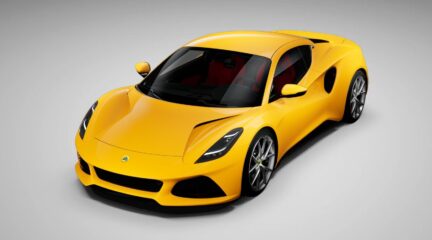
Lotus zal op de aanstaande autoshow van Genève het Omnivore Flex-Fuel Engine Concept onthullen. Dit concept motorblok is een één-cilinder 2-takt motor en geschikt voor diverse, op alcohol gebaseerde brandstoffen. Lotus denkt hiermee een lans te kunnen breken voor toekomstige verbrandingsmotoren. Het blok is uit één geheel vervaardigd en een koppakking is daardoor overbodig geworden, wat de levensduur van de motor op lange termijn ten goede zal komen.
De Omnivore Research Engine beschikt niet over kleppen zoals we die kennen in een normale 4-takt motor. In de uitlaatpoort zit een elektronisch gestuurde klep die het mogelijk maakt de uitlaatgascirculatie te regelen. Ook de compressieverhouding is variabel in deze motor. Door gebruik te maken van een zogenaamde “puck” bovenin de verbrandingskamer kan de compressie naar een ideaal beeld worden afgesteld. Deze puck kan op en neer bewegen en zodoende wordt de compressieverhouding aangepast. Dit, in combinatie met directe inspuiting, zorgt ervoor dat de ééncilinder relatief veel vermogen weet op te brengen. Cijfers ontbreken nog dus over de cilinderinhoud/vermogen-ratio is nog weinig te vertellen.
Het Omnivore-programma maakt deel uit van een groot onderzoek van Lotus om meer te weten te komen over de mogelijkheden die er zijn m.b.t. het mengen van brandstoffen en het gebruik van alcoholische brandstoffen. Zo zagen we eerder al deze Lotus Exige Tri-fuel voorbijkomen. Deze werd vorig jaar op de autoshow van Genève getoond. Dit jaar is het de beurt aan het ééncilindertje van Lotus, te bewonderen in Genève van 5 tot 15 maart.
Hieronder een tekening van de Omnivore Research Engine.

En een foto van een kale Omnivore Research Engine.

Lotus reveals flex-fuel engine concept to maximise fuel efficiency when running on renewable fuels or gasoline.
Lotus Engineering, the world-renowned automotive consultancy division of Lotus Cars Limited, unveils its latest research into engine efficiency at the 79th International Geneva Motor Show. The Omnivore engine concept has the potential to significantly increase fuel efficiency for sustainable alcohol based fuels, which increases the prospect of a greater amount of vehicle miles travelled using renewable fuels. On display will be the single cylinder research engine monoblock that demonstrates the novel architecture designed for high thermal efficiency when fuelled on any alcohol based fuel or gasoline.
The Omnivore concept features an innovative variable compression ratio system and uses a two-stroke operating cycle with direct fuel injection. It is ideally suited to flex-fuel operation with a higher degree of optimisation than is possible with existing four stroke engines.
The engine concept features a monoblock construction that blends the cylinder head and block together eliminating the need for a cylinder head gasket, improving durability and reducing weight. In this case, the application of a monoblock is facilitated by the absence of the requirement for poppet valves. A novel charge trapping valve in the exhaust port allows asymmetric timing of exhaust flow and continuous variation of the exhaust opening point.
The variable compression ratio is achieved by the use of a puck at the top of the combustion chamber. This simple, yet effective system moves up and down affecting the change in geometric compression depending on the load demands on the engine.
Mike Kimberley, Chief Executive Officer of Group Lotus plc said: “We are delighted to unveil this major milestone in the development of an engine configuration for a new breed of more efficient multi-fuel engines. The automotive sector is focusing on its environmental obligations to improve efficiency, minimise reliance on fossil fuels and reduce harmful emissions and Lotus continues to be an industry leader through our work on all aspects of future fuels. Sustainable alcohol based fuels have the potential to reduce the overall CO2 footprint of internal combustion engines towards zero and for this reason, need to be embraced as future fuels for road transport.”
In this collaboration with Queen’s University Belfast and Orbital Corporation Limited Australia, with sponsorship from DEFRA/DECC and DOE NI through the Renewables Materials LINK programme, Lotus Engineering is currently in the final stages of commissioning the Omnivore single-cylinder research engine. It uses the Orbital FlexDI™ fuel injection system which produces fine in-cylinder fuel preparation irrespective of fuel type, and together with air pre-mixing allows efficient two-stroke combustion and low-temperature starting, whilst offering singular opportunity for advanced HCCI control.
The Omnivore programme is another development of Lotus’ research into understanding the complex combustion processes involved in running an engine on mixtures of alcohol based fuels and gasoline, which included the Lotus Exige 270E Tri-fuel, unveiled at the International Geneva Motor Show in 2008. This research is vitally important for a successful transition from today’s fuels to the more efficient sustainable fuels of the future.
Geraint Castleton-White, Head of Powertrain at Lotus Engineering said, “The absence of poppet valves in two-stroke engines makes the incorporation of a variable compression ratio system relatively straightforward. Our research into these systems on four-stroke engines has led us to the conclusion that while thermodynamically it is a desirable technology to incorporate, practically it is very difficult, particularly taking into consideration production feasibility. This two-stroke engine could solve these practical difficulties and simultaneously permits a much larger range of compression ratio adjustment, with the potential to perform at a much higher efficiency when running on renewable fuels.”









mmm… ben benieuwd… klinkt erg interesant al snap ik niet precies wat er op die plaatjes staat…. ( ja het nieuwe blok… maar hoe het werkt mij een raadsel…)
@Lotus Omega
http://auto.howstuffworks.com/engine1.htm ;)
@ kawouter
Inderdaad. Het is ‘Jan loopt’, dus ook ‘Lotus onthult’. Maar da’s pas veranderd, natuurlijk, dus dat kan Ricardo niet weten… ;)
@ babbaloerie: Op die link staat beschreven hoe een 4-takt motor werkt. Daar heb je in dit gevaal echter niet zo heel veel aan. Het principe vane en 2-takt motor is toch wel heel anders namelijk.
http://members.home.nl/toonen.r/2takt.html
De 2-takt wordt wederom een keer afgestoft en voorzien van wat nieuwe goodies.
De firma Orbital is al jaaaaaaaren bezig met 2-takten.
Dik 10 jaar geleden reden er op deze aardkloot al Ford Fiesta’tjes rond met een orbital 2-taktje in de neus. Productie was nabij, vertelde men toen.
Ben benieuwd of het nu wel zover komt.
@Ramshoek, inderdaad kan ik mij ook nog die tweetakt Fiesta’s herinneren. Was de emissie van die motoren niet uiteindelijk het struikelblok voor productie of toch het geluid?
Als ik dan ook nog even mag zeuren over de tekst. De tekst “wat de levensduur van de motor op lange termijn” is wat dubbelop.
@Ramshoek
Vaak zijn er nieuwe inzichten/uitvindingen waardoor een bepaald type motor weer levensvatbaar is. Dus het is niet vreemd dat het weer wordt “afgestoft”
heb zo mijn twijfels, bij een scheepsmotor is de verbranding nog wel te regelen omdat dat ding zo intens traag werkt en daar maken uitstoten minder uit (hebben niet zo’n strenge regels), bij een auto is ongeveer elke uitstoot aan banden gelegd en een snel draaiende 2 takt is gewoon ontzettend lastig om goed te regelen waardoor je vaak veel meer uitstoot krijgt dan bij een 4 takt. lijkt me iig niet de meest logische weg, maar ben benieuwd. btw, dat blok uit een deel lijkt me overdreven, denk dat ze bedoelen dat de cilinder en cilinderkop uit een deel zijn.(in het plaatje zie ik niet echt ruimte voor een krukas;).
@Joost
“ontzettend lastig” en “overdreven” zijn niet echt woorden die in het vocabulaire van engelse men in sheds voorkomen, kijk maar eens op youtube naar de 2000 pk opel en de vampire rocket en dat soort dingen (of gewoon wat vaker naar top gear- ambitious but rubish!)
Dat is knap. Tenminste, Lotus heeft het ontwikkeld, het staat op autoblog, dus ergens neem ik dan aan dat het een vermogen zal ontwikkelen dat voldoende is voor een auto. Ik vraag me af hoe het met het geluid en de emmissies zal zitten.
Ik denk niet dat het een foto is maar een render van een pc.
als verbrandigsmotoren de toekomst hebben en het geen elektra word.
dan zal het zeker 2 takt zijn, die krijgen ze nu wel al aardig zuiniger dan 4takt en loopt ook mooier.